- Home
- Albert Camus
The Myth of Sisyphus and Other Essays Page 6
The Myth of Sisyphus and Other Essays Read online
Page 6
The most living; in the broadest sense, that rule means nothing. It calls for definition. It seems to begin with the fact that the notion of quantity has not been sufficiently explored. For it can account for a large share of human experience. A man’s rule of conduct and his scale of values have no meaning except through the quantity and variety of experiences he has been in a position to accumulate. Now, the conditions of modern life impose on the majority of men the same quantity of experiences and consequently the same profound experience. To be sure, there must also be taken into consideration the individual’s spontaneous contribution, the “given” element in him. But I cannot judge of that, and let me repeat that my rule here is to get along with the immediate evidence. I see, then, that the individual character of a common code of ethics lies not so much in the ideal importance of its basic principles as in the norm of an experience that it is possible to measure. To stretch a point somewhat, the Greeks had the code of their leisure just as we have the code of our eight-hour day. But already many men among the most tragic cause us to foresee that a longer experience changes this table of values. They make us imagine that adventurer of the everyday who through mere quantity of experiences would break all records (I am purposely using this sports expression) and would thus win his own code of ethics.[12] Yet let’s avoid romanticism and just ask ourselves what such an attitude may mean to a man with his mind made up to take up his bet and to observe strictly what he takes to be the rules of the game.
Breaking all the records is first and foremost being faced with the world as often as possible. How can that be done without contradictions and without playing on words? For on the one hand the absurd teaches that all experiences are unimportant, and on the other it urges toward the greatest quantity of experiences. How, then, can one fail to do as so many of those men I was speaking of earlier—choose the form of life that brings us the most possible of that human matter, thereby introducing a scale of values that on the other hand one claims to reject?
But again it is the absurd and its contradictory life that teaches us. For the mistake is thinking that that quantity of experiences depends on the circumstances of our life when it depends solely on us. Here we have to be over-simple. To two men living the same number of years, the world always provides the same sum of experiences. It is up to us to be conscious of them. Being aware of one’s life, one’s revolt, one’s freedom, and to the maximum, is living, and to the maximum. Where lucidity dominates, the scale of values becomes useless. Let’s be even more simple. Let us say that the sole obstacle, the sole deficiency to be made good, is constituted by premature death. Thus it is that no depth, no emotion, no passion, and no sacrifice could render equal in the eyes of the absurd man (even if he wished it so) a conscious life of forty years and a lucidity spread over sixty years.[13] Madness and death are his irreparables. Man does not choose. The absurd and the extra life it involves therefore do not defend on man’s will, but on its contrary, which is death.[14] Weighing words carefully, it is altogether a question of luck. One just has to be able to consent to this. There will never be any substitute for twenty years of life and experience.
By what is an odd inconsistency in such an alert race, the Greeks claimed that those who died young were beloved of the gods. And that is true only if you are willing to believe that entering the ridiculous world of the gods is forever losing the purest of joys, which is feeling, and feeling on this earth. The present and the succession of presents before a constantly conscious soul is the ideal of the absurd man. But the word “ideal” rings false in this connection. It is not even his vocation, but merely the third consequence of his reasoning. Having started from an anguished awareness of the inhuman, the meditation on the absurd returns at the end of its itinerary to the very heart of the passionate flames of human revolt.[15]
* * *
Thus I draw from the absurd three consequences, which are my revolt, my freedom, and my passion. By the mere activity of consciousness I transform into a rule of life what was an invitation to death—and I refuse suicide. I know, to be sure, the dull resonance that vibrates throughout these days. Yet I have but a word to say: that it is necessary. When Nietzsche writes: “It clearly seems that the chief thing in heaven and on earth is to obey at length and in a single direction: in the long run there results something for which it is worth the trouble of living on this earth as, for example, virtue, art, music, the dance, reason, the mind—something that transfigures, something delicate, mad, or divine,” he elucidates the rule of a really distinguished code of ethics. But he also points the way of the absurd man. Obeying the flame is both the easiest and the hardest thing to do. However, it is good for man to judge himself occasionally. He is alone in being able to do so.
“Prayer,” says Alain, “is when night descends over thought.”
“But the mind must meet the night,” reply the mystics and the existentials. Yes, indeed, but not that night that is born under closed eyelids and through the mere will of man—dark, impenetrable night that the mind calls up in order to plunge into it. If it must encounter a night, let it be rather that of despair, which remains lucid—polar night, vigil of the mind, whence will arise perhaps that white and virginal brightness which outlines every object in the light of the intelligence. At that degree, equivalence encounters passionate understanding. Then it is no longer even a question of judging the existential leap. It resumes its place amid the age-old fresco of human attitudes. For the spectator, if he is conscious, that leap is still absurd. In so far as it thinks it solves the paradox, it reinstates it intact. On this score, it is stirring. On this score, everything resumes its place and the absurd world is reborn in all its splendor and diversity.
But it is bad to stop, hard to be satisfied with a single way of seeing, to go without contradiction, perhaps the most subtle of all spiritual forces. The preceding merely defines a way of thinking. But the point is to live.
The Absurd Man
If Stavrogin believes, he does not think he believes. If he does not believe, he does not think he does not believe.
—The Possessed
My field,” said Goethe, “is time.” That is indeed the absurd speech. What, in fact, is the absurd man? He who, without negating it, does nothing for the eternal. Not that nostalgia is foreign to him. But he prefers his courage and his reasoning. The first teaches him to live without appeal and to get along with what he has; the second informs him of his limits. Assured of his temporally limited freedom, of his revolt devoid of future, and of his mortal consciousness, he lives out his adventure within the span of his lifetime. That is his field, that is his action, which he shields from any judgment but his own. A greater life cannot mean for him another life. That would be unfair. I am not even speaking here of that paltry eternity that is called posterity. Mme Roland relied on herself. That rashness was taught a lesson. Posterity is glad to quote her remark, but forgets to judge it. Mme Roland is indifferent to posterity.
There can be no question of holding forth on ethics. I have seen people behave badly with great morality and I note every day that integrity has no need of rules. There is but one moral code that the absurd man can accept, the one that is not separated from God: the one that is dictated. But it so happens that he lives outside that God. As for the others (I mean also immoralism), the absurd man sees nothing in them but justifications and he has nothing to justify. I start out here from the principle of his innocence.
That innocence is to be feared. “Everything is permitted,” exclaims Ivan Karamazov. That, too, smacks of the absurd. But on condition that it not be taken in the vulgar sense. I don’t know whether or not it has been sufficiently pointed out that it is not an outburst of relief or of joy, but rather a bitter acknowledgment of a fact. The certainty of a God giving a meaning to life far surpasses in attractiveness the ability to behave badly with impunity. The choice would not be hard to make. But there is no choice, and that is where the bitterness comes in. The absurd does not liberate; it binds. It d
oes not authorize all actions. “Everything is permitted” does not mean that nothing is forbidden. The absurd merely confers an equivalence on the consequences of those actions. It does not recommend crime, for this would be childish, but it restores to remorse its futility. Likewise, if all experiences are indifferent, that of duty is as legitimate as any other. One can be virtuous through a whim.
All systems of morality are based on the idea that an action has consequences that legitimize or cancel it. A mind imbued with the absurd merely judges that those consequences must be considered calmly. It is ready to pay up. In other words, there may be responsible persons, but there are no guilty ones, in its opinion. At very most, such a mind will consent to use past experience as a basis for its future actions. Time will prolong time, and life will serve life. In this field that is both limited and bulging with possibilities, everything in himself, except his lucidity, seems unforeseeable to him. What rule, then, could emanate from that unreasonable order? The only truth that might seem instructive to him is not formal: it comes to life and unfolds in men. The absurd mind cannot so much expect ethical rules at the end of its reasoning as, rather, illustrations and the breath of human lives. The few following images are of this type. They prolong the absurd reasoning by giving it a specific attitude and their warmth.
Do I need to develop the idea that an example is not necessarily an example to be followed (even less so, if possible, in the absurd world) and that these illustrations are not therefore models? Besides the fact that a certain vocation is required for this, one becomes ridiculous, with all due allowance, when drawing from Rousseau the conclusion that one must walk on all fours and from Nietzsche that one must maltreat one’s mother. “It is essential to be absurd,” writes a modern author, “it is not essential to be a dupe.” The attitudes of which I shall treat can assume their whole meaning only through consideration of their contraries. A sub-clerk in the post office is the equal of a conqueror if consciousness is common to them. All experiences are indifferent in this regard. There are some that do either a service or a disservice to man. They do him a service if he is conscious. Otherwise, that has no importance: a man’s failures imply judgment, not of circumstances, but of himself.
I am choosing solely men who aim only to expend themselves or whom I see to be expending themselves. That has no further implications. For the moment I want to speak only of a world in which thoughts, like lives, are devoid of future. Everything that makes man work and get excited utilizes hope. The sole thought that is not mendacious is therefore a sterile thought. In the absurd world the value of a notion or of a life is measured by its sterility.
Don Juanism
If it were sufficient to love, things would be too easy. The more one loves, the stronger the absurd grows. It is not through lack of love that Don Juan goes from woman to woman. It is ridiculous to represent him as a mystic in quest of total love. But it is indeed because he loves them with the same passion and each time with his whole self that he must repeat his gift and his profound quest. Whence each woman hopes to give him what no one has ever given him. Each time they are utterly wrong and merely manage to make him feel the need of that repetition. “At last,” exclaims one of them, “I have given you love.” Can we be surprised that Don Juan laughs at this? “At last? No,” he says, “but once more.” Why should it be essential to love rarely in order to love much?
Is Don Juan melancholy? This is not likely. I shall barely have recourse to the legend. That laugh, the conquering insolence, that playfulness and love of the theater are all clear and joyous. Every healthy creature tends to multiply himself. So it is with Don Juan. But, furthermore, melancholy people have two reasons for being so: they don’t know or they hope. Don Juan knows and does not hope. He reminds one of those artists who know their limits, never go beyond them, and in that precarious interval in which they take their spiritual stand enjoy all the wonderful ease of masters. And that is indeed genius: the intelligence that knows its frontiers. Up to the frontier of physical death Don Juan is ignorant of melancholy. The moment he knows, his laugh bursts forth and makes one forgive everything. He was melancholy at the time when he hoped. Today, on the mouth of that woman he recognizes the bitter and comforting taste of the only knowledge. Bitter? Barely: that necessary imperfection that makes happiness perceptible!
It is quite false to try to see in Don Juan a man brought up on Ecclesiastes. For nothing is vanity to him except the hope of another life. He proves this because he gambles that other life against heaven itself. Longing for desire killed by satisfaction, that commonplace of the impotent man, does not belong to him. That is all right for Faust, who believed in God enough to sell himself to the devil. For Don Juan the thing is simpler. Molina’s Burlador ever replies to the threats of hell: “What a long respite you give me!” What comes after death is futile, and what a long succession of days for whoever knows how to be alive! Faust craved worldly goods; the poor man had only to stretch out his hand. It already amounted to selling his soul when he was unable to gladden it. As for satiety, Don Juan insists upon it, on the contrary. If he leaves a woman it is not absolutely because he has ceased to desire her. A beautiful woman is always desirable. But he desires another, and no, this is not the same thing.
This life gratifies his every wish, and nothing is worse than losing it. This madman is a great wise man. But men who live on hope do not thrive in this universe where kindness yields to generosity, affection to virile silence, and communion to solitary courage. And all hasten to say: “He was a weakling, an idealist or a saint.” One has to disparage the greatness that insults.
* * *
People are sufficiently annoyed (or that smile of complicity that debases what it admires) by Don Juan’s speeches and by that same remark that he uses on all women. But to anyone who seeks quantity in his joys, the only thing that matters is efficacy. What is the use of complicating the passwords that have stood the test? No one, neither the woman nor the man, listens to them, but rather to the voice that pronounces them. They are the rule, the convention, and the courtesy. After they are spoken the most important still remains to be done. Don Juan is already getting ready for it. Why should he give himself a problem in morality? He is not like Milosz’s Manara, who damns himself through a desire to be a saint. Hell for him is a thing to be provoked. He has but one reply to divine wrath, and that is human honor: “I have honor,” he says to the Commander, “and I am keeping my promise because I am a knight.” But it would be just as great an error to make an immoralist of him. In this regard, he is “like everyone else”: he has the moral code of his likes and dislikes. Don Juan can be properly understood only by constant reference to what he commonly symbolizes: the ordinary seducer and the sexual athlete. He is an ordinary seducer.[16] Except for the difference that he is conscious, and that is why he is absurd. A seducer who has become lucid will not change for all that. Seducing is his condition in life. Only in novels does one change condition or become better. Yet it can be said that at the same time nothing is changed and everything is transformed. What Don Juan realizes in action is an ethic of quantity, whereas the saint, on the contrary, tends toward quality. Not to believe in the profound meaning of things belongs to the absurd man. As for those cordial or wonder-struck faces, he eyes them, stores them up, and does not pause over them. Time keeps up with him. The absurd man is he who is not apart from time. Don Juan does not think of “collecting” women. He exhausts their number and with them his chances of life. “Collecting” amounts to being capable of living off one’s past. But he rejects regret, that other form of hope. He is incapable of looking at portraits.
* * *
Is he selfish for all that? In his way, probably. But here, too, it is essential to understand one another.
There are those who are made for living and those who are made for loving. At least Don Juan would be inclined to say so. But he would do so in a very few words such as he is capable of choosing. For the love we are speaking of here is clothed i
n illusions of the eternal. As all the specialists in passion teach us, there is no eternal love but what is thwarted. There is scarcely any passion without struggle. Such a love culminates only in the ultimate contradiction of death. One must be Werther or nothing. There, too, there are several ways of committing suicide, one of which is the total gift and forget-fulness of self. Don Juan, as well as anyone else, knows that this can be stirring. But he is one of the very few who know that this is not the important thing. He knows just as well that those who turn away from all personal life through a great love enrich themselves perhaps but certainly impoverish those their love has chosen. A mother or a passionate wife necessarily has a closed heart, for it is turned away from the world. A single emotion, a single creature, a single face, but all is devoured. Quite a different love disturbs Don Juan, and this one is liberating. It brings with it all the faces in the world, and its tremor comes from the fact that it knows itself to be mortal. Don Juan has chosen to be nothing.
For him it is a matter of seeing clearly. We call love what binds us to certain creatures only by reference to a collective way of seeing for which books and legends are responsible. But of love I know only that mixture of desire, affection, and intelligence that binds me to this or that creature. That compound is not the same for another person. I do not have the right to cover all these experiences with the same name. This exempts one from conducting them with the same gestures. The absurd man multiplies here again what he cannot unify. Thus he discovers a new way of being which liberates him at least as much as it liberates those who approach him. There is no noble love but that which recognizes itself to be both short-lived and exceptional. All those deaths and all those rebirths gathered together as in a sheaf make up for Don Juan the flowering of his life. It is his way of giving and of vivifying. I let it be decided whether or not one can speak of selfishness.

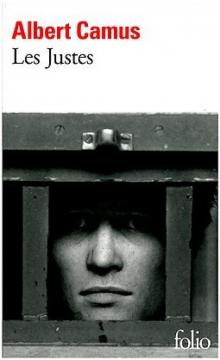 Les Justes
Les Justes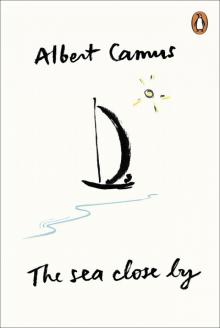 The Sea Close By
The Sea Close By The Stranger
The Stranger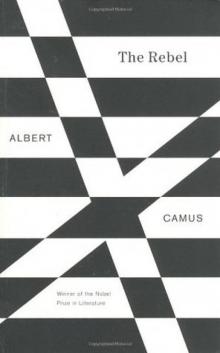 The Rebel: An Essay on Man in Revolt
The Rebel: An Essay on Man in Revolt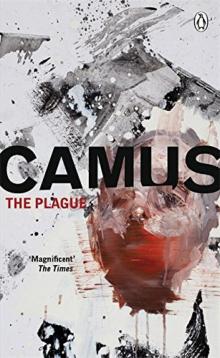 The plague
The plague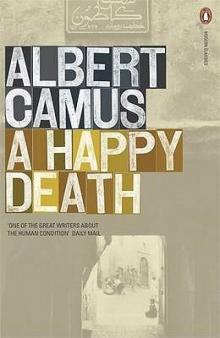 A Happy Death
A Happy Death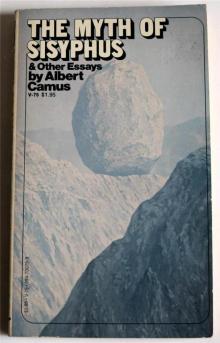 The Myth of Sisyphus and Other Essays
The Myth of Sisyphus and Other Essays The Fall
The Fall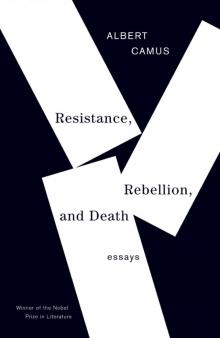 Resistance, Rebellion, and Death
Resistance, Rebellion, and Death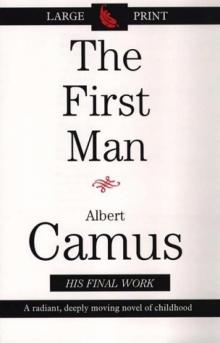 The First Man
The First Man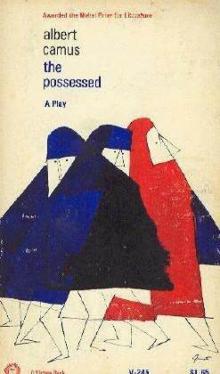 The Possessed
The Possessed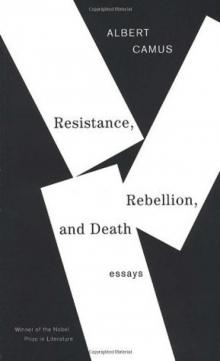 Resistance, Rebellion and Death: Essays
Resistance, Rebellion and Death: Essays